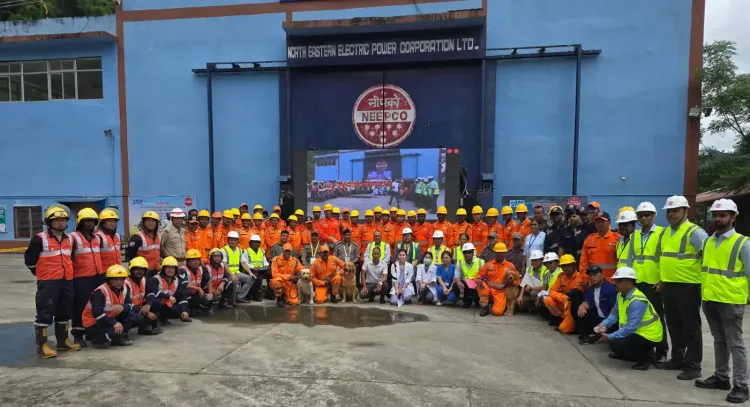How does the Disaster Management Exercise enhance humanitarian support preparedness in Arunachal?

Synopsis
Key Takeaways
- Strengthened civil-military integration for disaster response.
- Improved coordination among various agencies.
- Enhanced preparedness for future HADR operations.
- Focus on remote and disaster-prone areas.
- Commitment to proactive disaster management.
Itanagar, July 17 (NationPress) A thorough joint Disaster Management Workshop and Exercise, centered around Humanitarian Assistance and Disaster Relief (HADR) operations, was carried out in the Papum Pare district of Arunachal Pradesh, demonstrating flawless collaboration throughout India’s disaster management infrastructure, officials reported on Thursday.
A military spokesperson stated that the exercise united personnel from the Spear Corps of the Army, the Indian Air Force (IAF), the Indo-Tibetan Border Police (ITBP), CRPF, and resources from the National Disaster Response Force (NDRF) along with representatives from the Union Ministry of Power.
The initiative showcased a cohesive and resilient strategy for tackling large-scale emergencies, focusing specifically on remote and disaster-prone regions, the spokesperson noted.
The spokesperson emphasized that this initiative has made substantial progress in enhancing inter-agency preparedness for upcoming HADR missions. It reaffirmed the strategic importance of civil-military collaboration, which is vital for facilitating prompt and effective disaster responses.
By fortifying cooperation between civilian infrastructure agencies and military forces, the exercise established strong foundations for better-coordinated actions during future natural disasters, the official remarked.
According to the defense PRO, the success of this collaborative effort underscores India’s unwavering dedication to improving resilience through proactive disaster preparedness, infrastructure enhancement, and inter-agency alliances.
This highlights the crucial role of civil-military partnerships in protecting lives and livelihoods, especially in strategically significant areas like the northeast.
“Such simulated exercises are essential for refining institutional response frameworks, ensuring the timely provision of aid, and bolstering the nation’s capacity to cope with future disasters. The knowledge and experience gained from this exercise will be pivotal in shaping India’s disaster management strategies moving forward,” the spokesperson stated.
Notable attendees included the Deputy Commissioner of Papum Pare, A. Balan, Maj Gen Ajay Kumar Verma (Retd), Senior Consultant at NDMA, and senior representatives from the NDRF, ITBP, and the Indian Army.










